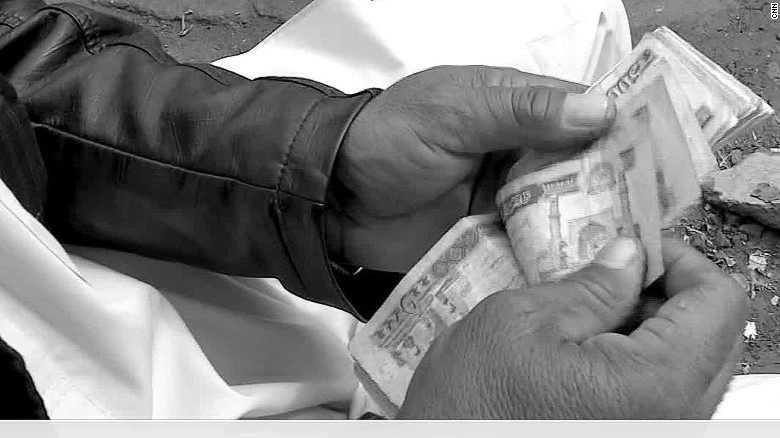People smugglers hover as Afghans look to flee uncertainty
If anything can give an indication of the mood of Afghans these days, it's the rush to get a passport.
Getting a passport has never been so popular. Even early in the morning, the line snaking from Kabul's passport office stretches for several blocks, composed of people worried about the faltering economy -- and the threat of all-out war.
Precisely how many of those waiting patiently plan to flee is hard to nail down but estimates from Europe show that Afghans are second only to the number of Syrians in the flow of refugees that have made their way north in recent months.
Omar Saboor, the Director of the Passport Office, says every day 6 to 7,000 Afghans apply for new travel documents. He says since Europe opened its doors to refugees there has been a marked increase in applications, which he directly attributes to the change in policy.
Smuggling boom
And for the city's people smugglers, every successful application is a potential business opportunity.
One tells CNN that he's moved 1,500 people to Germany, the most popular destination for those looking to flee, in the last 6 months.
He offers three different routes, of varying difficulty -- and varying odds of success. For $7,000, the route is via the sea. For a couple of thousand more, you're transported by road and foot.
The most expensive, which offers the best chance of getting to your final destination, is by air. This route costs you a cool $20,000, but top-dollar buys you a black market visa and direct flights.
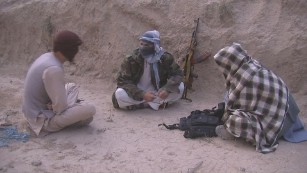
Afghanistan: The Taliban's new recruits
But most opt for the cheaper, riskier, options.
"We have had people injured and killed along this journey," the smuggler, who can't be identified as his line of work is highly illegal, tells me.
Just over two weeks ago, he says, 70 people -- including 15 of his clients -- were caught by Iranians and deported from the Turkish border.
To mitigate the risk, the money is held by a trusted third party, who releases it to the smuggler once the person contacts him from their final destination. But at the end of the day, the people smugglers still get paid, even if the smuggled never make it -- an informal system allows each would-be refugee three tries to make it through the net but if they fail at each of their three attempts, they still have to pay up -- proving that the smugglers still hold all the cards.
New prosperity, but masked trepidation
When I arrived back in Kabul a little over a week ago, my first impression was: Wow! Clean and green. A Kabul I hardly recognize.
Where once we heaved through potholes, we now rolled along a majestic spread of smooth tarmac, bordered by miniature manicured lawns.
As we drove along the wide boulevard that links the airport to Afghanistan's capital city, it felt serene, surreal even. Even the young saplings along the side of the road oozed an atmosphere of new prosperity and hope.
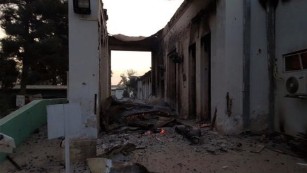
Doctors Without Borders increases pressure for international investigation
But the obvious changes in Kabul since my last visit four years ago didn't mask the reality of life here. In August, a suicide attack by the Taliban near the entrance to the airport left five people dead and more than a dozen wounded.
Further into the city, the same airport road leads to the U.S. Embassy. The route is considered so unsafe that U.S. Embassy personnel travel by helicopter rather than take their chances on the road their country's dollars likely built.
Faltering economy
The aura of an effervescent economy is just that. The dollars that paid for the roads and other projects that put Afghans in jobs has been drying up too, as foreign troops draw down and international investors head for the exit.
But the Taliban profit from the faltering economy -- recruitment has become a relatively easy sell.
Several would-be recruits who talked to a local freelance cameraman working for CNN said the only reason they joined the Taliban was because they couldn't put food on the table.
"I want to join them because of the lack of jobs and my other economic problems," one recruit told us.
OPINION: Why Obama can't turn back on Afghans
A second man, who showed us his high school diploma, told us he'd been to university and still couldn't find a job. The Taliban offered him more than he could earn in the army, he claimed.
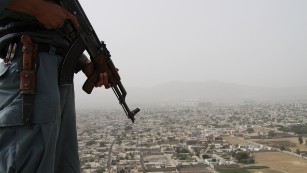
Leaving Afghanistan: Obama's options amid turmoil
"I don't have anything to do with their viewpoints. My only reason to join them is my economical problems and unemployment," he added.
Kunduz shock
As we drove around Kabul's streets the gloss of a better life seemed to have come tantalizingly close.
There are so many more shops and so many more bright lights than before. Stores are stacked neatly floor to ceiling with all manner of nuts and fruit. Pistachios, a big local favorite, and succulent raisins, raised and dried in the parched fields of Helmand.
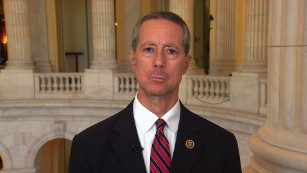
ISIS is growing in Afghanistan, congressman says
But yesterday's casual shoppers and relaxed businessmen now have more pressing concerns. Not just an economy in turmoil but a resurgent Taliban. The recent fall of Kunduz, a major city of 300,000 people in the north of the country, has many wondering what will happen next, and whether the capital could eventually fall.
READ: Kunduz airstrike a 'war crime,' say MSF
Both recruits said the Taliban could lose its appeal if fortunes change and the government could find them jobs. They'd jump ship immediately.
It's not just bombs and bullets that will win this war, but business -- and plenty of it.
I was here when the seeds of commerce were being planted in the last decade. Back then Kabul was a greyer, darker place.
But just as the colors of brighter future are beginning to blossom, there's a real chance it could all get buried for another generation.
News Courtesy: www.cnn.com

